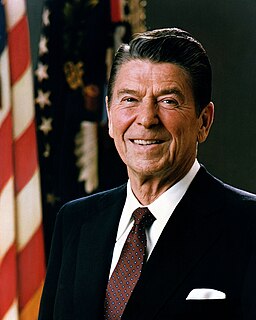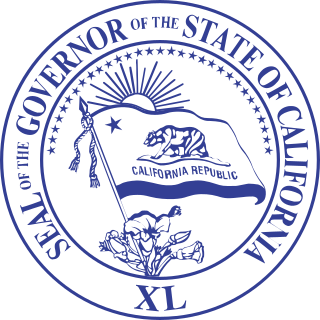This article does not cite any sources .(March 2015) (Learn how and when to remove this template message) |
| |||||
| Decades: | |||||
|---|---|---|---|---|---|
| See also: | Other events of 2003 List of years in Laos | ||||
The following lists events that happened during 2003 in Laos .
This article does not cite any sources .(March 2015) (Learn how and when to remove this template message) |
| |||||
| Decades: | |||||
|---|---|---|---|---|---|
| See also: | Other events of 2003 List of years in Laos | ||||
The following lists events that happened during 2003 in Laos .

Donald Henry Rumsfeld is an American former politician. Rumsfeld served as Secretary of Defense from 1975 to 1977 under Gerald Ford, and again from January 2001 to December 2006 under George W. Bush. He is both the youngest and the second-oldest person to have served as Secretary of Defense. Additionally, Rumsfeld was a three-term U.S. Congressman from Illinois (1963–69), director of the Office of Economic Opportunity (1969–70), counsellor to the president (1969–73), the United States Permanent Representative to NATO (1973–74), and White House Chief of Staff (1974–75). Between his terms as Secretary of Defense, he served as the CEO and chairman of several companies.

Ronald Wilson Reagan was an American politician who served as the 40th president of the United States from 1981 to 1989 and became a highly influential voice of modern conservatism. Prior to his presidency, he was a Hollywood actor and union leader before serving as the 33rd governor of California from 1967 to 1975.

Thomas Jefferson was an American statesman, diplomat, lawyer, architect, philosopher, and Founding Father who served as the third president of the United States from 1801 to 1809. He had previously served as the second vice president of the United States between 1797 and 1801. The principal author of the Declaration of Independence, Jefferson was a proponent of democracy, republicanism, and individual rights, motivating American colonists to break from the Kingdom of Great Britain and form a new nation; he produced formative documents and decisions at both the state and national level.
2003 (MMIII) was a common year starting on Wednesday of the Gregorian calendar, the 2003rd year of the Common Era (CE) and Anno Domini (AD) designations, the 3rd year of the 3rd millennium, the 3rd year of the 21st century, and the 4th year of the 2000s decade.

Fidel Alejandro Castro Ruz was a Cuban revolutionary and politician who served as Prime Minister of Cuba from 1959 to 1976 and President from 1976 to 2008. Ideologically a Marxist–Leninist and Cuban nationalist, he also served as the First Secretary of the Communist Party of Cuba from 1961 until 2011. Under his administration the Republic of Cuba became a one-party communist state; industry and business were nationalized, and state socialist reforms were implemented throughout society.

James Abram Garfield was the 20th president of the United States, serving from March 4, 1881, until his death by assassination six and a half months later. He is the only sitting member of the United States House of Representatives to be elected to the presidency.

The secretary of the treasury is the head of the United States Department of the Treasury, which is concerned with all financial and monetary matters relating to the federal government, and, until 2003, also included several major federal law enforcement agencies. This position in the federal government of the United States is analogous to the minister of finance in many other countries. The secretary of the treasury is a member of the president's Cabinet, and is nominated by the president of the United States. Nominees for Secretary of the Treasury undergo a confirmation hearing before the United States Senate Committee on Finance before being voted on by the United States Senate.

The president pro tempore of the United States Senate is the second-highest-ranking official of the United States Senate. Article One, Section Three of the United States Constitution provides that the vice president of the United States is the president of the Senate, and mandates that the Senate must choose a president pro tempore to act in the vice president's absence. Unlike the vice president, the president pro tempore is an elected member of the Senate, able to speak or vote on any issue. Selected by the Senate at large, the president pro tempore has enjoyed many privileges and some limited powers. During the vice president's absence, the president pro tempore is empowered to preside over Senate sessions. In practice, neither the vice president nor the president pro tempore usually presides; instead, the duty of presiding officer is rotated among junior U.S. senators of the majority party to give them experience in parliamentary procedure.

The West Wing is an American serial political drama television series created by Aaron Sorkin that was originally broadcast on NBC from September 22, 1999, to May 14, 2006. The series is set primarily in the West Wing of the White House, where the Oval Office and offices of presidential senior staff are located, during the fictitious Democratic administration of Josiah Bartlet.

The Governor of California is the head of state and head of government of the U.S. state of California. The California Governor is the chief executive of the state government and the commander-in-chief of the California National Guard and the California State Guard.

Air Force One is the official air traffic control call sign for a United States Air Force aircraft carrying the president of the United States. In common parlance, the term is used to denote U.S. Air Force aircraft modified and used to transport the president. The aircraft are prominent symbols of the American presidency and its power.

The United States presidential line of succession is the order in which officials of the United States federal government assume the powers and duties of the office of president of the United States if the incumbent president becomes incapacitated, dies, resigns, or is removed from office. The order of succession specifies that the office passes to the vice president; if the vice presidency is simultaneously vacant, or if the vice president is also incapacitated, the powers and duties of the presidency pass to the speaker of the House of Representatives, president pro tempore of the Senate, and then Cabinet secretaries, depending on eligibility.

Heydar Alirza oglu Aliyev was an Azerbaijani politician who served as the third President of Azerbaijan from October 1993 to October 2003. As national president he held constitutional powers, but his influence on Azerbaijani politics had begun years earlier. As a young man he had joined the Azerbaijan SSR People's Commissariat for State Security (NKGB) and quickly rose to the rank of Major-General.

The Government of India, often abbreviated as GoI, is the union government created by the constitution of India as the legislative, executive and judicial authority of the union of twenty eight states and eight union territories of a constitutionally democratic republic. The seat of the Government is located in New Delhi, the capital of India.

The 2004 United States presidential election was the 55th quadrennial presidential election, held on Tuesday, November 2, 2004. The incumbent Republican President George W. Bush and his running mate Vice President Dick Cheney were elected to a second term, defeating the Democratic ticket of John Kerry, a United States Senator from Massachusetts and his running mate John Edwards, a United States Senator from North Carolina.

George Walker Bush is an American politician and businessman who served as the 43rd president of the United States from 2001 to 2009. A member of the Republican Party, he had previously served as the 46th governor of Texas from 1995 to 2000. Born into the Bush family, his father, George H. W. Bush, served as the 41st president of the United States from 1989 to 1993.

John Fitzgerald Kennedy, often referred to by his initials JFK and Jack, was an American politician who served as the 35th president of the United States from January 1961 until his assassination in November 1963. Kennedy served at the height of the Cold War, and the majority of his work as president concerned relations with the Soviet Union and Cuba. A Democrat, Kennedy represented Massachusetts in the U.S. House of Representatives and Senate prior to becoming president.

Ilham Heydar oğlu Aliyev is an Azerbaijani politician who is the fourth president of Azerbaijan, in office since 2003. He also functions as the Chairman of the New Azerbaijan Party and the head of Azerbaijan's National Olympic Committee.
| This article related to the history of Laos or its predecessor states is a stub. You can help Wikipedia by expanding it. |
| This year in Asia article is a stub. You can help Wikipedia by expanding it. |